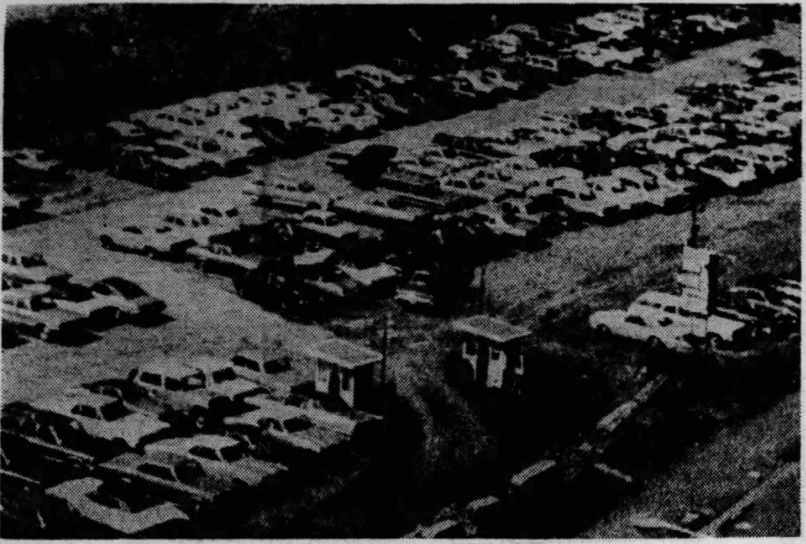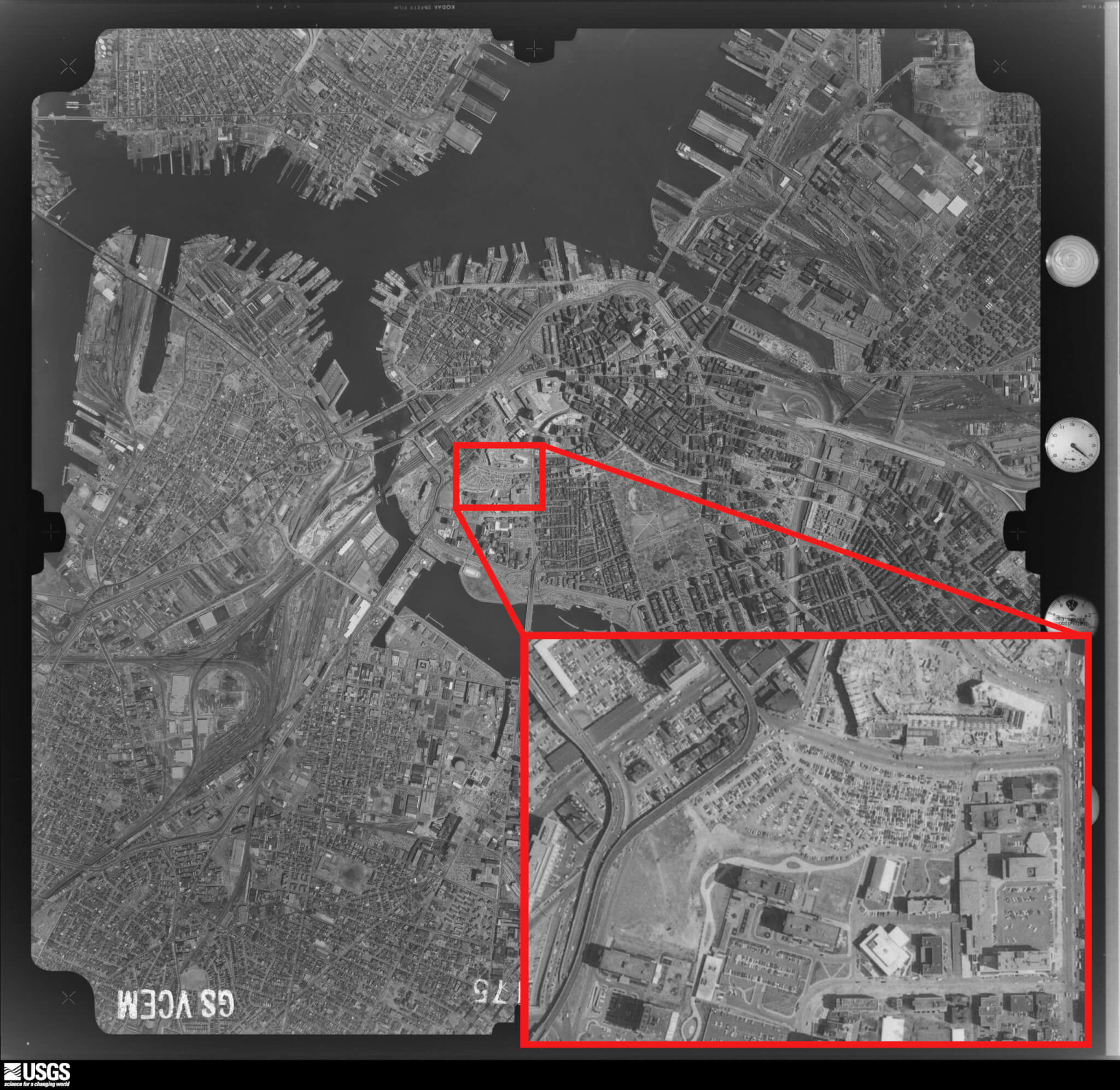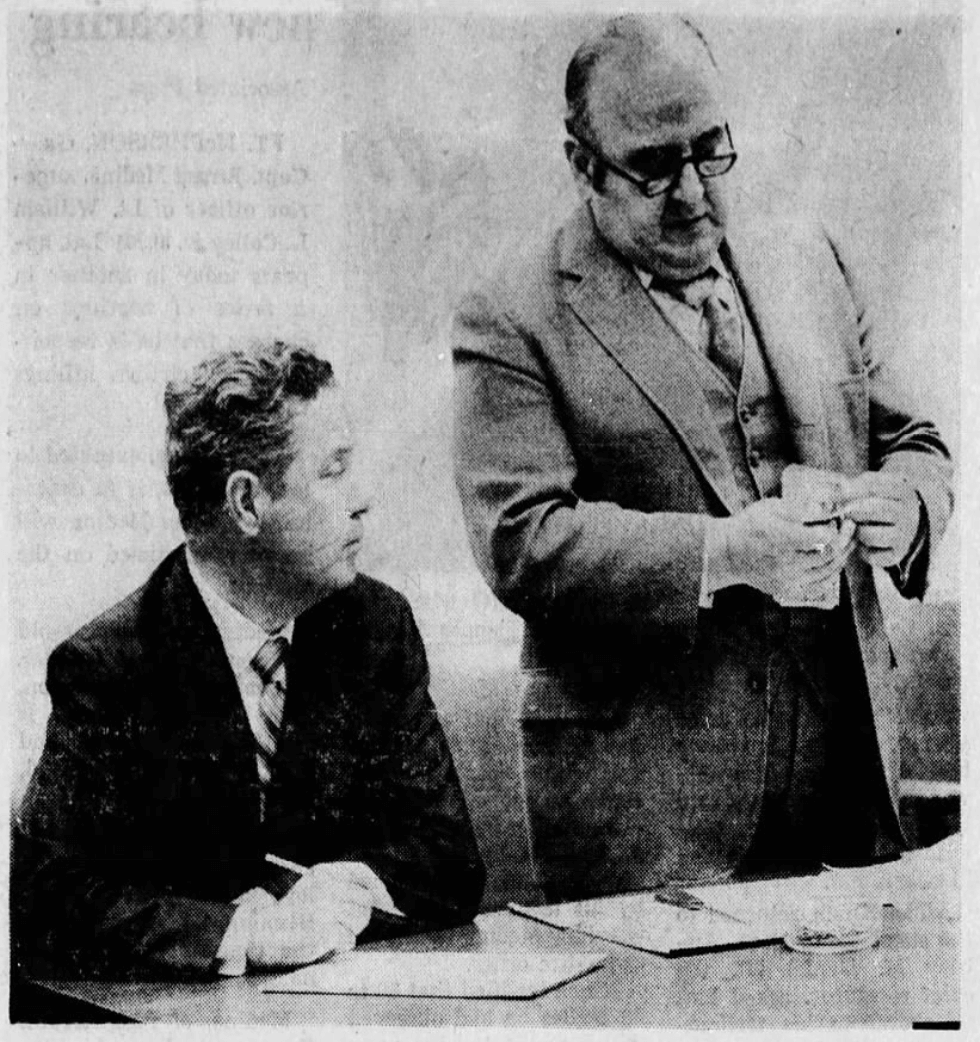Augustus Mantia’s Parking Lot
A West End Controversy
Augustus Mantia and his family owned the West End parking lot Staniford Street during the 1960s. Cars parked on an unpaved field where vibrant tenements once stood before their demolition by the Boston Redevelopment Authority in the late 1950s. Public backlash against the Mantias’ monopoly over the lot – with high profits, abnormally low rent, and no competitive bidding process – led the City to close the parking lot in January 1971.
When Charles River Park, Inc. entered into a lease agreement with the Boston Redevelopment Authority (BRA), in 1960, to develop on the 41 acres of demolished West End land, 11 of those acres remained undeveloped throughout the decade. A large portion of that land, on the corner of Staniford Street and Lomasney Way (the modern site of Longfellow Towers, West End Place, and The West End Museum), became an unpaved parking lot operated at an enormous profit by the family of Augustus Mantia. Mantia’s family, which resided in the North End, owned a fruit business in the old West End for fifty years. But this family firm’s West End parking lot was no unblemished success story. Mantia maintained exclusive ownership without undergoing any competitive, public bidding process for ten years; the combination of that monopoly, plus an extraordinarily low rent paid to the city, appeared like “preferential treatment” by the BRA, according to a Boston Globe editorial on December 4, 1970.
Months earlier, in September 1970, the Globe’s Spotlight team completed an investigation that exposed a stark discrepancy: over ten years, Mantia’s family grossed roughly $1.4 million from two lots on Cambridge St. (from 1961 to 1965) and Staniford St. (from 1965 to 1970), while paying the BRA roughly $132,200 in rent (estimates suggest around $14,000 a year). One of the central concerns for West Enders was that the City of Boston could have received more revenue for a better use of the land. Rosalie Warren, in a letter to the Globe on October 15, 1970, said that “speaking for many senior citizens of the West End I thank you for your sympathetic editorial on the subject of our sore spot, the parking lot on Staniford St.” Warren hoped that the BRA would support Director John Warner’s plans for senior citizen housing in the West End, a better use of cleared land than a parking lot.
The October 6 editorial that Warren replied to made a passionate critique of the West End parking lot for exacerbating the housing shortage. The unnamed author wrote, “it is a cruel paradox and shameful evidence of the failure of government that, in a time of statewide housing shortage at all income levels, much of the West End’s prime land, originally seized and prepared to create new housing, is devoted to parking automobiles.” The editorial concluded with hope that “the West End may be devoted to people rather than cars.” Although the parking lot was convenient for Massachusetts General Hospital (MGH) staff and visitors to the Boston Garden, the replacement of vibrant tenements with a parking lot – when the BRA promised new, affordable housing for West Enders – threw salt on many wounds.
Prior to the Spotlight report, the West End parking lot was a controversial issue for residents, the Boston City Council, and BRA officials. In 1968, Boston City Council criticized the BRA for allowing prime land to remain a “parking field” when it could have been the site of new developments that would generate more tax revenue. But MGH benefitted from special, discounted access to the Mantia’s parking lot. The Hospital sent a letter to the BRA in 1968 that expressed worry that with plans for a new West End apartment complex, there could be “the possibility that perhaps the Authority may feel obligated to withdraw the privilege granted to the hospital for the use of some 103,725 square feet as a parking field.” The Mantia family was a beneficiary of this privilege: in 1970, MGH paid a lump sum fee of $72,000 so that its staff could use the West End lot for one year. BRA meetings remained contentious for multiple years: in August 1970, Warner, who wanted to close down the parking lot and open it up to public bidding, faced resistance from board members who originally approved Augustus Mantia’s exclusive lease.
Press coverage, and the subsequent public response, compelled Mayor Kevin White to request that the BRA open the West End parking lot to public bidding in late September; the BRA accepted the request unanimously. When news broke that four parking companies offered to pay at least $60,000/year to the BRA to lease the lot, the Globe’s editorial staff reminded readers that the Mantias were only paying a mere $14,400 a year. White was originally hesitant to make any decisions on the West End lot until he could be certain that the planned Government Center parking garage would get completed. Once that nearly 2,000-car garage was set to open on January 4, 1971, White announced his new position: that the West End lot be closed indefinitely. He wrote, in a letter to the BRA on December 30, 1970, that “In light of the fact that the new facility will provide more than adequate parking to the Government Center-West End area, it is my strong desire that the so-called West End parking lot…be closed to all parking on the day following the official opening of the garage.” The city subsequently closed the West End lot on January 6, 1971, on the official basis that the Mantias’ license expired on January 1.
Article by Adam Tomasi
Source: ProQuest/Boston Globe (“Parking Lot Issue Spurs Action on West End Projects,” January 7, 1968; “BRA group attempting to delay West End parking lot closing,” August 16, 1970; “Spotlight: Mantia lot could have grossed $1.4M in 10 years,” September 27, 1970; “Spotlight: The West End Parking Lot,” September 27, 1970; “That West End ‘bonanza’,” October 6, 1970; Rosalie Warren, “The West End,” October 15, 1970; “That West End parking lot,” December 4, 1970; “Spotlight: West End Parking Lot To Be Closed Next Week,” December 31, 1970; “West End parking lot closes,” January 7, 1971)










